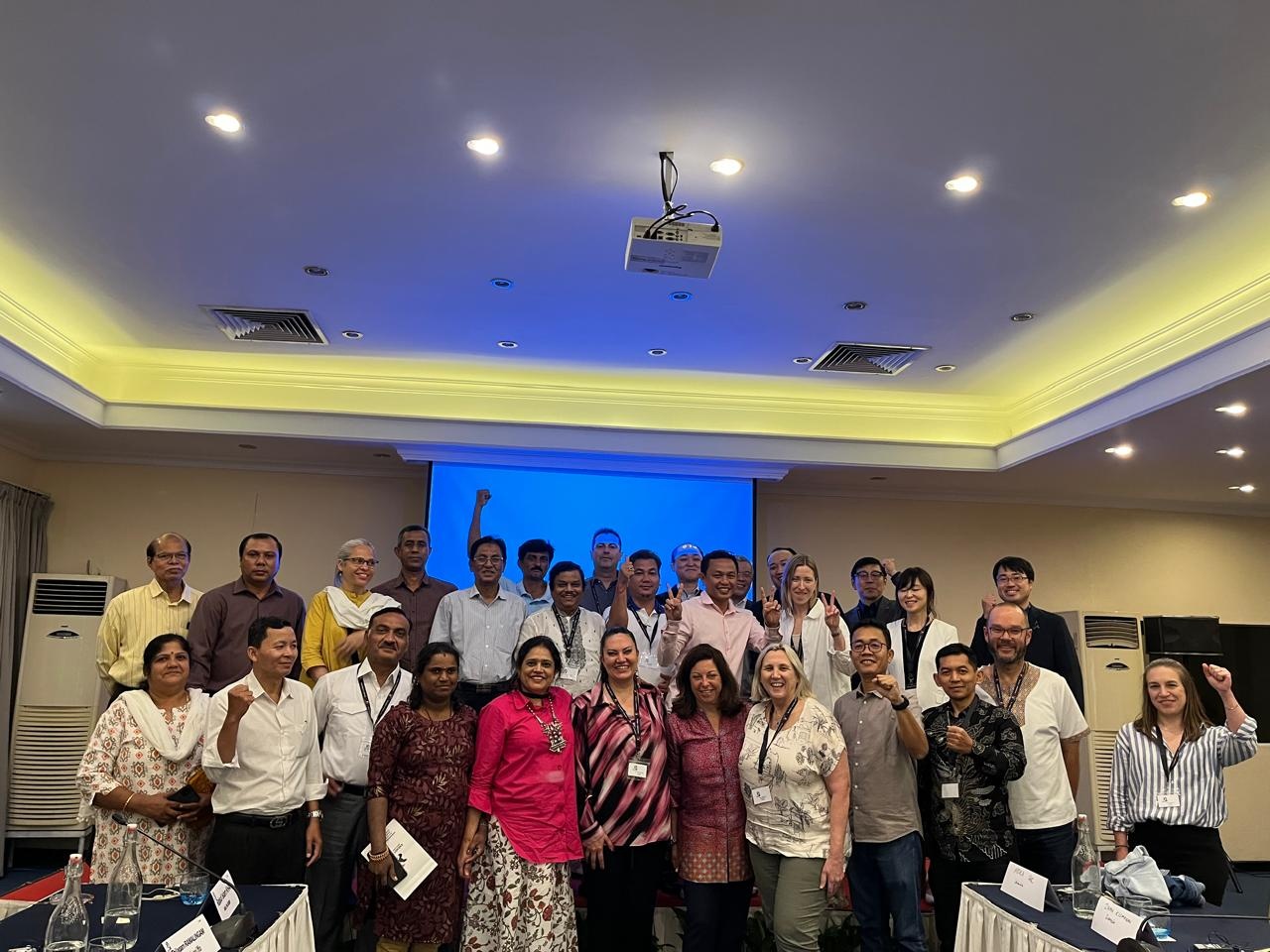11 June, 2024Enhancing workers' rights and enforcing fair labour practices in the global garment industry was on the agenda when IndustriALL affiliates from the textile and garment sector from around the world met in Phnom Pen, Cambodia, for the annual steering committee meeting on 4 June.
In his welcome remarks, Athit Kong, C.CADWU president, highlighted the significance of the newly announced legally binding brand support agreement. He further updated the committee on the ongoing collective bargaining negotiations with the employer’s association.
Said Athit Kong:
“This is an important breakthrough to hold global brands and retailers accountable for supporting CBAs and wage improvements.”
The meeting, co-chaired by Zehra Khan from Pakistan, featured a review of the sector’s 2024 strategic plan, updates on the progress of the International Accord, and the development of 2025 strategic campaigns. The committee also passed two resolutions.
The first resolution was in support of the Cambodia collective bargaining agreement and the legally binding Agreement to Support Collectively Bargained Wages in the Garment, Textile, Footwear and Travel Goods Industry in Cambodia. The resolution resolved to support IndustriALL’s global campaign to have all brands sourcing in Cambodia to sign the agreement.
The second resolution focused on the REI Organizing campaign, supporting the REI Union's efforts to secure its first collective bargaining agreement in the United States. The resolution commits to ensure union representation for all textile and garment workers producing REI apparel and gear, while guaranteeing compliance with fundamental labor rights, including freedom of association, collective bargaining, health and safety, and the elimination of discriminatory, forced labor, and child labour practices.
Christina Hajagos-Clausen, IndustriALL textile director, highlighted the importance of IndustriALL’s approach to promote a supply chain industrial relations model centered on workers’ rights and binding agreements with global brands.
“This is in contrast to the voluntary, private auditing model, which has not been protective of workers’ rights and has brought risk to investors and companies alike. Successful and effective examples of the newer model of global company-trade union agreements include the International Accord and now the legally binding support agreements for national collective bargaining that were support by ACT.
For the first time, the ACT process, by addressing the structural barriers to living wages, has a genuine chance of increasing garment workers’ wages in a way that is scalable, sustainable and enforceable.”



